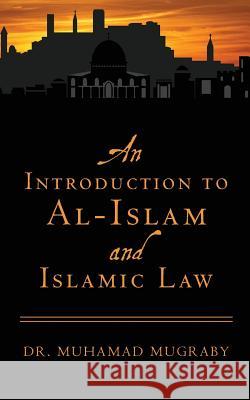An Introduction to Al-Islam and Islamic Law » książka
An Introduction to Al-Islam and Islamic Law
ISBN-13: 9781482336375 / Angielski / Miękka / 2013 / 264 str.
An Introduction to Al-Islam and Islamic Law
ISBN-13: 9781482336375 / Angielski / Miękka / 2013 / 264 str.
(netto: 91,73 VAT: 5%)
Najniższa cena z 30 dni: 95,52
ok. 16-18 dni roboczych.
Darmowa dostawa!
Al-Islam, by linguistic definition, is the state of being at peace and security. It is a house of peace. Al-Sharia is part and parcel of Al-Islam. It is Islamic law. It occupies a central role in the Islamic system, a role designed to insure and protect peace and security for all. Lack of adequate public as well as academic knowledge of and about Al-Sharia is prevalent and is underscored by the inability of thousands of authors in various languages to come to grips with its nature. Most of them define Al-Sharia as religious law. They do so because they interpret Al-Islam as a religion just like Christianity and try to apply to it principles and doctrines that various Christian churches have come either to accept or to reject. A case in point is the doctrine of separation of church and state which, when applied to Al-Islam, serves to de-legitimize Al-Sharia. Hence any call for reinstating Al-Sharia is adamantly rejected as an affront to secularism and modernity. The author, a jurist educated in Western universities, a Doctor of the Science of Law from Columbia University, a former law lecturer, and a well-known human rights defender, demonstrates that Al-Islam is not a mere religion in the Christian sense, but religion and religious worship and belief are parts of it. Al-Islam is a universal system that cannot be separated from Al-Sharia for Al-Sharia embodies and upholds a number of general principles of law and aims to insure peace and protect all inalienable individual rights cherished by Al-Islam. He compares those rights with rights upheld under the Universal Declaration of Human Rights, the American Declaration of Independence and the French Declaration of the Rights of man and the Citizen. In the process, the author demonstrates how Al-Sharia embodies and upholds a rule of law that ranks above kings and all other sovereigns. He argues that the full application of Al-Sharia, which recognizes the bounds, or hudood, of Allah, does not require the rise of one Islamic State to do the job nor will it prevent Islamic states from co-existing in peace and cooperation with each other as well as with non-Islamic states that are willing and agreeable to joining a peace for all humans without discrimination. The conclusion is inevitable that Al-Islam cannot be itself without Al-Sharia and, therefore, denial of Al-Sharia is, in truth, denial of Al-Islam.
Zawartość książki może nie spełniać oczekiwań – reklamacje nie obejmują treści, która mogła nie być redakcyjnie ani merytorycznie opracowana.











